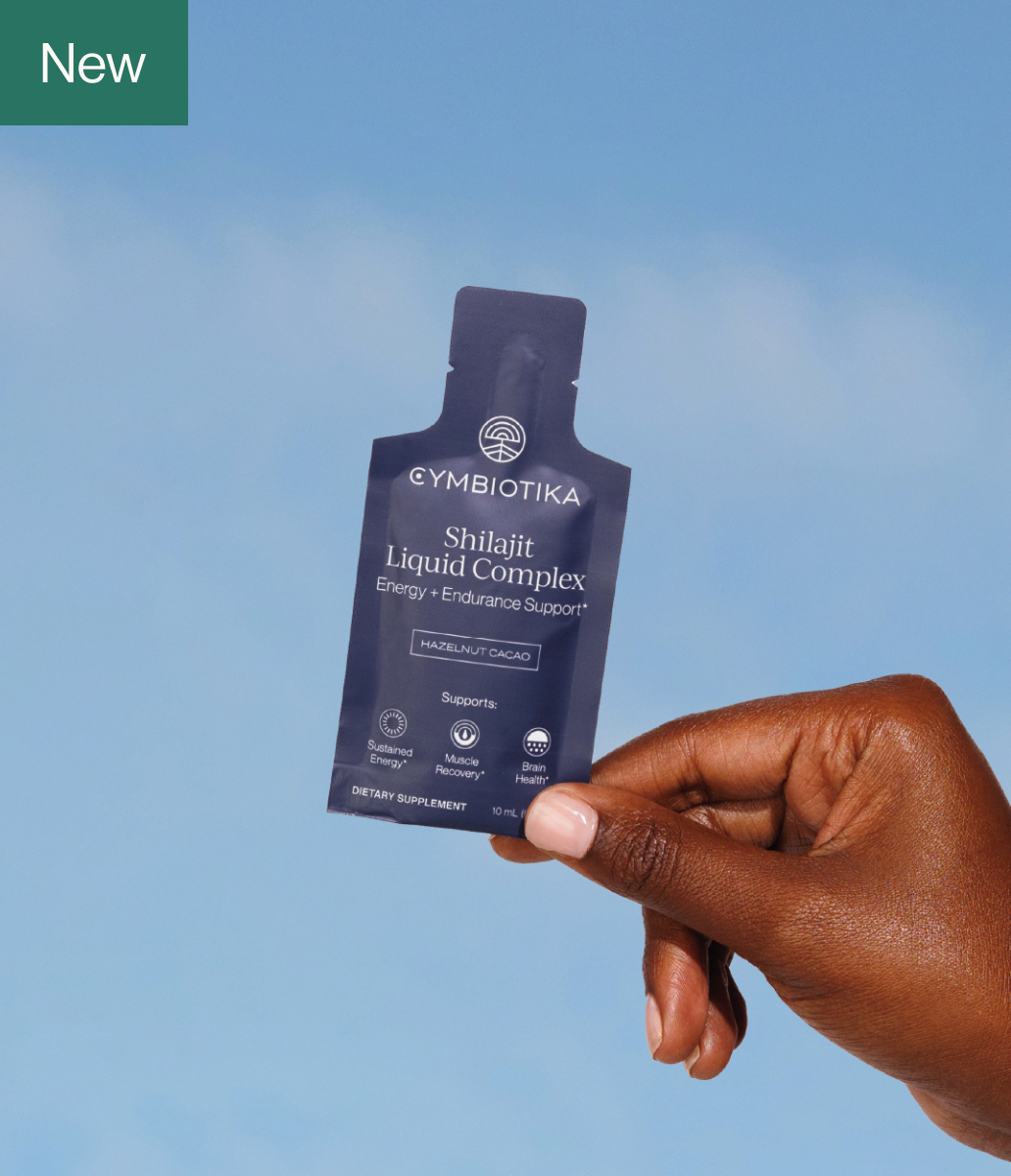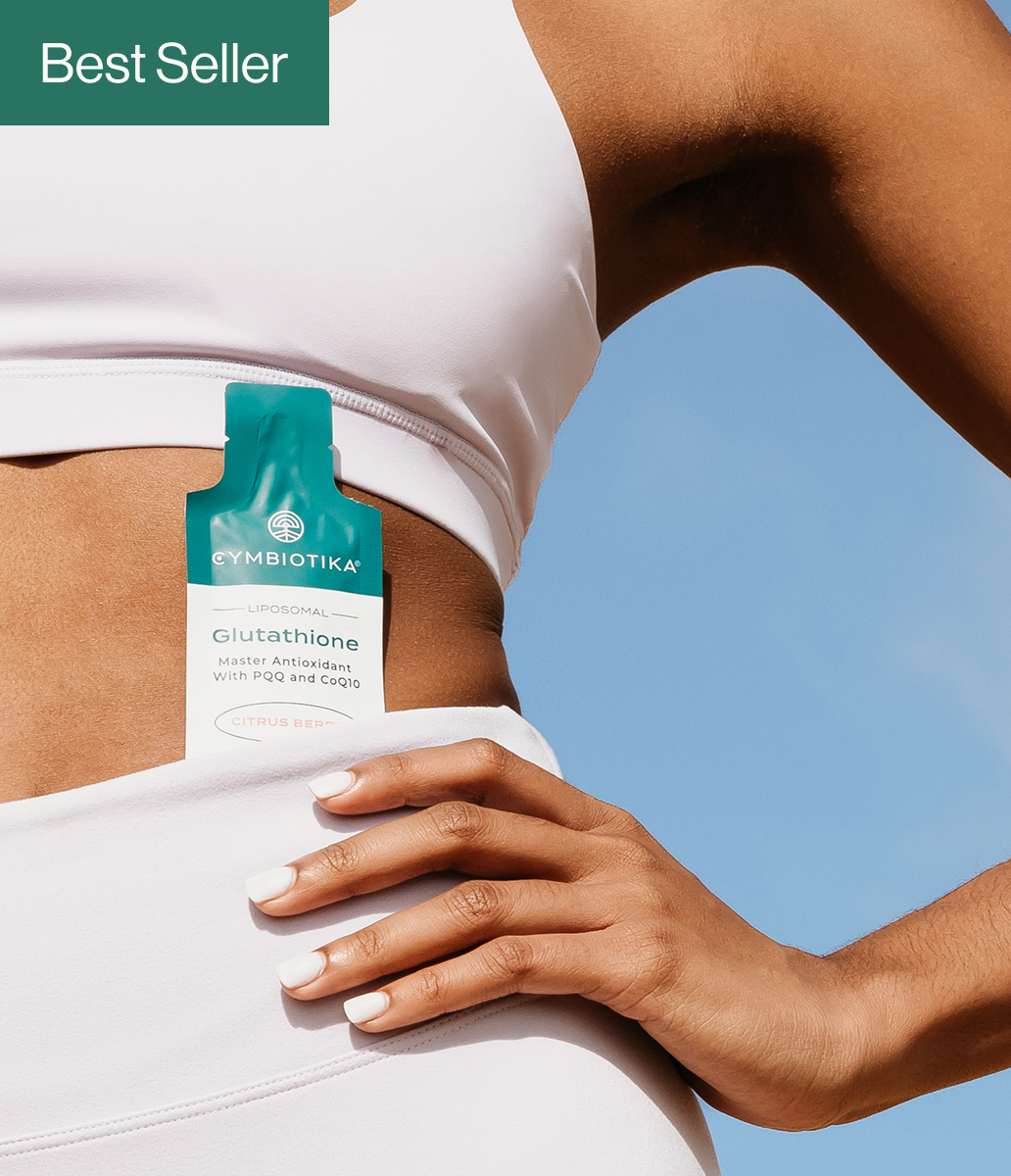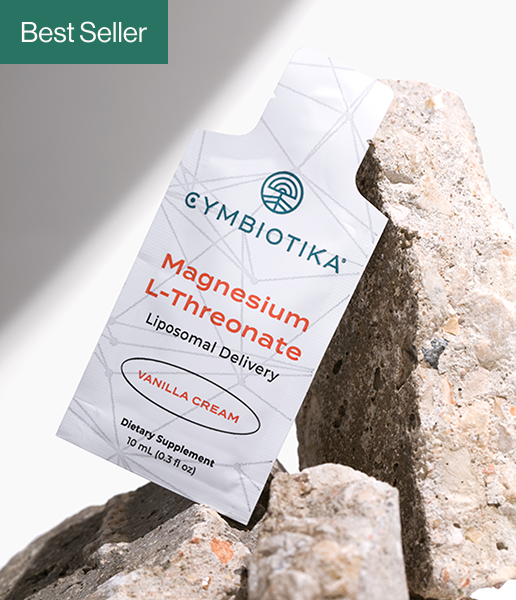
Magical, inspiring, transformative—a few words often used to describe the miracle of pregnancy. And while “transformative” is certainly an accurate descriptor, especially when you look down at your growing belly, we can’t overlook all the little changes that accompany that one hyper-noticeable difference.
From morning sickness to random cravings, pregnancy comes with a lot of physiological changes—in particular, a fluctuating immune system. Without holistic care, a slightly weakened immune system could transform into an unshakeable illness.
If you’ve been furiously typing “how to boost immune system while pregnant” into the search bar, rest your fingertips. For Mother’s Day, Cymbiotika has created a comprehensive immune health guide for pregnant women. With a focus on a wellness diet and prenatal vitamin supplements, you can boost your immune system. Whether for yourself or the mother-to-be in your life, read on to learn all the immune-boosting tips and tricks.
What is the Immune System?
When we’re talking about the immune system, we’re referring to a complex network of organs, chemicals, and microbes in your body. To protect both your and your future baby’s body, you need to learn its defenses. Let’s break immunity down into simple steps.
All humans have two types of immune responses—innate and adaptive.1 Innate immunity is the body’s initial defense against dangers like bacteria, viruses, and other pathogens. This line of protection involves physical barriers and microbe “fighters” like:
- Skin
- Mucus
- Antibiotic enzymes
- Stomach acid
- Immune system cells (white blood cells, etc.)
Unlike innate, adaptive immunity evolves over time as your cells “learn” which pathogens to attack. This can prevent harmful new viruses (like the flu) or create false reactions against typically unharmful substances (like peanut allergies). Adaptive immunity involves organs or body functions that control immune cell release, like the:
- Spleen
- Thymus
- Bone marrow
- Lymph nodes
So what happens when our body’s immune responses get triggered? Inflammation.
Contrary to popular belief, some inflammation signals a healthy immune system! That swollen ankle or sore neck may be uncomfortable, but it’s necessary for healing. It only becomes harmful when the inflammation turns into a long-term symptom even after fulfilling its purpose.
Why is My Immune System So Important During Pregnancy?
From infancy to old age, strong immunity is crucial. But pregnant women especially need a robust immune response—after all, you’re protecting two bodies under one system!
During pregnancy, the ongoing physical shifts make immune-strengthening a little tricker than usual. Most women typically experience deep immune system changes across stages:2
- First trimester – Initially, the immune system gently powers up in response to the unfamiliar entity growing inside you. This inflammation helps ensure embryo attachment, but it should fall short of “attacking” the baby as a foreign body, the way it would with an infection or virus.
- Second trimester – To boost the baby’s growth, immunity dips at around 12 weeks into pregnancy. This stops the body from negatively reacting against the baby’s foreign cells.
- Labor and birth – Inflammation rapidly increases during birth, helping induce labor.
Because of these waves of change, you’re more likely to get sick when pregnant. While a common cold should leave both you and your baby relatively unscathed, more serious infections can impact fetus or infant health.
The bottom line? It never hurts to protect your immune system when pregnant. Start with these five tips for boosting your prenatal immune system.
#1 Focus on a Wellness Diet
As you prepare for motherhood, think back to your own mother’s dinner table advice: eat your peas and carrots so you can grow up healthy and strong.
Boosting your immune system starts with your dinner plate. Nutrients—vitamins, minerals, and other compounds—are essential for immune cell function, not to mention all bodily functions. The more nutrient-dense your food is, the more reinforcements you’re giving your body.
Unfortunately, no magical superfood can prevent all diseases. But following a few pregnancy diet guidelines can increase your total nutrient intake and body’s defenses.3 When planning your meals for the week, consider these healthy diet tips:
- Whole foods – Stick with foods in their most natural state like fresh fruits, vegetables, grains when tolerated, and proteins, and avoid the processed aisles at the grocery store.
- Source Local and Organic When Possible – Head to your local farmers market to pick up an array of TRULY organic produce to ensure you are not getting bombarded with harmful pesticides when eating your food.
- Opt for 100% Grass Fed & Grass Finished Meats/Animal Products – If you are going to eat animal products, make sure they are grass fed and grass finished. Sourcing is extremely important when consuming animal products, as many ranchers give their animals non-organic, GMO and grain-based feed that lowers the quality of the meat. To optimize your pregnancy, we recommend sourcing meat, organs, eggs, and dairy from good ranches or farms that take care of their animals the right way to ensure quality over quantity.
- Low sugar – Refined or added sugars are known inflammatory triggers. As a replacement, choose fruits with natural sugars.
#2 Add Prenatal-Friendly Supplements
The dinner plate may be our nutritional home base, but it’s just that: a starting point. Naturally, you may not be able to fit every vitamin and nutrient into each daily meal, and that’s okay. You might wonder, what is the importance of prenatal vitamins? There are many benefits of prenatal vitamins that help both you and your baby.
But if you’re suffering from a nutritional deficiency, your immune system might be suffering, too. Pregnant women, in particular, hold a high risk for nutritional deficiencies.1
Maximize your immune response with these research-backed supplements:
- Vitamin C – An orange a day keeps the… OB/GYN away? Numerous studies show that Vitamin C is a crucial immune system aid.4 For a more convenient way to consume this quality supplement, our Synergy Liposomal Vitamin C can fill a Vitamin C nutrient gap for pregnant women.
- Vitamin D – This bone-building vitamin not only supports your skeleton but also regulates immune cell response and health.5 Combine the pathogen-fighting power of Vitamin D with cardiovascular and anti-aging benefits in our Synergy D3 + K2 + COQ10.
- Selenium – If Brazil nuts aren’t a big part of your diet, you might need a boost of selenium. This mineral has incredible health benefits; one, in particular, is immune system support.6
- Zinc – A popular cold-fighter, zinc is found in shellfish, legumes, and nuts. Studies show that zinc deficiency consistently correlates with low immunity.7 For an extra punch of prenatal immune support, our Elderberry Defense combines zinc with elderberry and echinacea, two plant-based extracts with proven antiviral properties.
- Iron – Anemia (or iron deficiency) can trigger a range of symptoms, from lightheadedness to weak immunity. If you’re vegetarian or eat few iron-rich foods, an iron supplement can help strengthen your immune response.8
- Probiotics – The gut microbiome hosts an incredible army of antimicrobial proteins9—not to mention that better digestion means better absorption of nutrients. Show your stomach some love and care with a science-backed probiotic, like the L. Rhamnosus in our Regenesis formula.
#3 Engage Your Body (Gently)
Exercising during pregnancy doesn’t have to be about “keeping the baby weight off.” To stay flu-free, it takes a little sweat and movement.
Moderate exercise enhances not only your mood and muscle tone but also your body’s immune response. Immediately after a sweat session, your body increases lymphatic circulation, releases anti-inflammatories, and boosts immune cell activity.10 With a regular fitness schedule, your immune system will sustain major antiviral powers.
For pregnant women, exercise can feel questionable, even risky. You never want to hurt your growing child with abrupt movement; however, a sedentary lifestyle is equally risky for an infant's health. To stay infection-resistant, stick with about 150 minutes of moderate aerobic exercise per week.11 For everyone’s safety, choose a low-impact activity such as:
- Speed walking
- Bicycling
- Swimming
- Cleaning or gardening
- Prenatal yoga
- Pilates
- Low-load weightlifting
As always, when exercising, make sure to stay hydrated, cool, and mindful. If anything hurts or simply doesn’t feel right, it’s better to avoid it altogether than push through the pain.
#4 Rest
Almost one-third of adults don’t achieve the recommended seven hours of sleep per night.12 And for pregnant women, the odds are even higher. Whether you struggled with sleep before or were introduced to insomnia during pregnancy, you’re not alone. Many prenatal conditions keep women tossing and turning in bed, including obstructive sleep apnea, restless legs syndrome, and acid reflux.13
Getting adequate rest is even more important for pregnant women. When you don’t catch those much-needed ZZZ’s, your immune system weakens against infections or inflammatory conditions like preeclampsia.14 Multiple studies found that poor sleep quality during pregnancy correlated with health risks for both the mother and baby.
But if counting sheep seems impossible, don’t lose hope. Certain supplements can reduce stress for a seamless bedtime, like our Adrenal Super Tonic. With calming herbs and adaptogens like lavender, rose geranium, and ashwagandha, our tonic will nourish your body’s stress response, enhancing overall relaxation.
#5 Hydrate
Ah, water. It’s the elixir of life—literally.
Hydration plays a hand in almost all bodily functions, from metabolism to muscle formation. After all, our bodies are 60% H2O. The immune system is no exception. When you drink the recommended eight to twelve glasses of water per day, your immune response bounces back.15 And for pregnant women, it’s best to stay on the upper end of that range.
Try out these pregnancy-friendly hydration tips:16
- Avoid indigestion – Keep the majority of your water intake between meals, not during them. That way, you’ll experience less bloat and nausea.
- Decrease caffeine – It’s not easy giving up that second cup but caffeine is a known diuretic, increasing your body’s water loss.
- Substitute flavored hydration – Liquids like organic grass fed bone broth, organic juice not from concentrate and herbal tea can make hydration feel like less of a chore.
- Bottle up – Make a habit of bringing a reusable water bottle wherever you go. Certain ones come with hourly markings, helping you track your intake as you drink.
Share the Motherly Love with Cymbiotika
All mothers—current and future—deserve love on Mother’s Day. And what’s a better way to show your love than by caring for someone’s well-being?
With our immunity tips and Mother’s Day bundle, mothers-to-be will kick off their newest holiday in nourished style.
Sources:
- Harvard School of Public Health. Nutrition and Immunity. https://www.hsph.harvard.edu/nutritionsource/nutrition-and-immunity/
- Family Education. The Immune System and Pregnancy: A Step-by-Step Guide. https://www.familyeducation.com/immune-system-pregnancy-step-step-guide
- Medical News Today. How and why does diet influence immune function? https://www.medicalnewstoday.com/articles/how-and-why-does-diet-influence-immune-function
- Nutrients. Vitamin C and Immune Function. https://pubmed.ncbi.nlm.nih.gov/29099763/
- Journal of Investigative Medicine. Vitamin D and the Immune System. https://www.ncbi.nlm.nih.gov/pmc/articles/PMC3166406/
- Healthline. 7 Science-Based Health Benefits of Selenium. https://www.healthline.com/nutrition/selenium-benefits
- Molecular Medicine. Zinc in Human Health: Effect of Zinc on Immune Cells. https://www.ncbi.nlm.nih.gov/pmc/articles/PMC2277319/
- Archivos Latinoamericanos de Nutrición. Role of iron in immunity and its relation with infections. https://pubmed.ncbi.nlm.nih.gov/1097183
- Harvard Health. Should you take probiotics? https://www.health.harvard.edu/staying-healthy/should-you-take-probiotics
- Clinical and Experimental Medicine. Physical exercise as a tool to help the immune system against COVID-19: an integrative review of the current literature. https://www.ncbi.nlm.nih.gov/pmc/articles/PMC7387807/
- American College of Obstetricians and Gynecologists. Exercise During Pregnancy. https://www.acog.org/womens-health/faqs/exercise-during-pregnancy
- Center for Disease Control. 1 in 3 adults don’t get enough sleep. https://www.cdc.gov/media/releases/2016/p0215-enough-sleep.html
- Sleep Foundation. Pregnancy and Sleep. https://www.sleepfoundation.org/pregna
- Sleep Journal. Chronic sleep loss during pregnancy as a determinant of stress: impact on pregnancy outcome. https://pubmed.ncbi.nlm.nih.gov/24994566/
- Fitday. 5 Immune System Benefits of Drinking Water. https://www.fitday.com/fitness-articles/nutrition/healthy-eating/5-immune-system-benefits-of-drinking-water.htm
- Healthline. Symptoms of Severe Dehydration During Pregnancy. https://www.healthline.com/health/pregnancy/dehydration




















